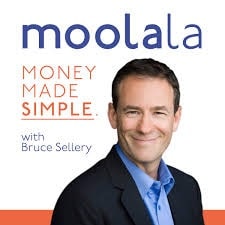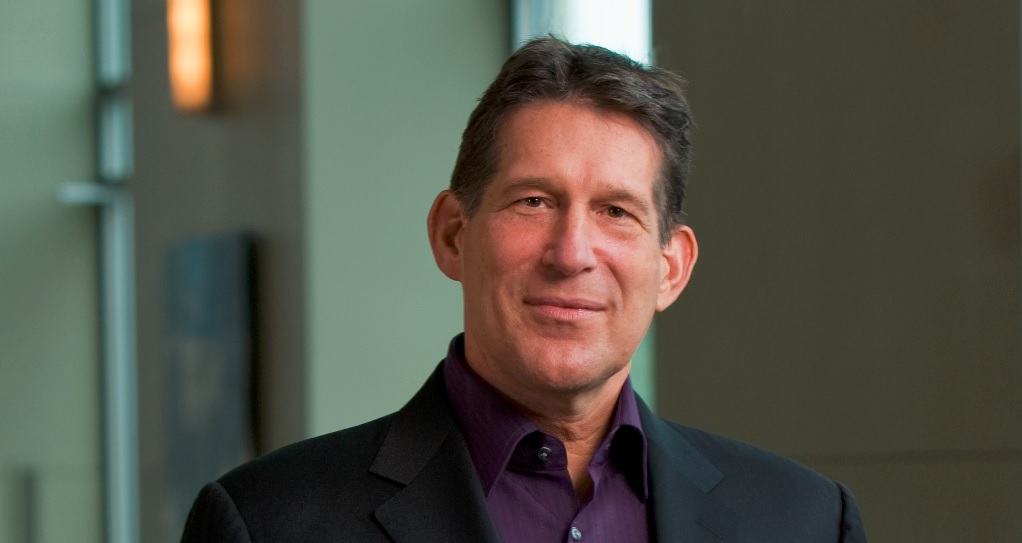 Landmark Forum Leader David Cunningham recently appeared on the Canada Talks SiriusXM station, on the program ‘Moolala: Money Made Simple’, with Bruce Sellery, where they discussed the interpretations people have about money and the impact this has on our lives. The transcript has been lightly edited for clarity.
Landmark Forum Leader David Cunningham recently appeared on the Canada Talks SiriusXM station, on the program ‘Moolala: Money Made Simple’, with Bruce Sellery, where they discussed the interpretations people have about money and the impact this has on our lives. The transcript has been lightly edited for clarity.
BRUCE SELLERY: The meaning of money. I have long believed that insight trumps knowledge when it comes to getting a handle on your money. Understanding how you think and behave is so much more important than understanding the tax code. Besides, it’s more interesting, too. But uncovering the insights can be tough to do. Today we’re going to look at the facts of money and our interpretations about those facts. David Cunningham is a program leader at Landmark Worldwide, a personal and professional growth training and development company. Hello David.
DAVID CUNNINGHAM: Hello Bruce.
BRUCE SELLERY: The meaning of money differs for everyone. Why is that?
DAVID CUNNINGHAM: Well Bruce, whenever you and I have a life experience, when something happens to us, whether we’re aware of it or not, in the next moment we have an interpretation of what happened. Simple example is, we’re talking to somebody and while we’re talking to them, they glance at their watch.
That’s what happens. They glance at their watch. We have an interpretation, something like, oh, they’re not interested in what I’m saying. For all of us growing up, we had many different things that happened with regard to money. And, when those events happened, we had interpretations of them. We interpreted them. We came up with stories about those events. And long after the events are over, as adults, we have a view of money. Money means something, and it’s an accumulation of all of those decisions, interpretations, stories we made up about money throughout the course of our lifetime in all those different events.
BRUCE SELLERY: And why does that matter? Like, how does that play out? Why are interpretations so important?
DAVID CUNNINGHAM: That matters in two really critical ways, Bruce. Number one, is what you and I think is possible. What people think is possible. It’s not given by the facts of their life, or the circumstances, but by their view of those circumstances. You know, I just ran a marathon recently, and in the marathon I ran next to a guy who had no legs. He was doing the whole marathon in a wheelchair. What did he prove to us? He proved that whether you have legs or not does not determine whether it’s possible to do a marathon. It’s your view of that circumstance. So with money, in particular, we have a view given by our interpretations that we’ve accumulated over the years. And it’s that view of money, not the money we have or don’t have. It’s the view of money that determines what we think is possible and not possible for us. That’s the first point.
BRUCE SELLERY: Let’s take a case of credit card debt. Here, the average outstanding debt on a credit card is about $3,500. And you can imagine how high that goes just to have the average be that way. If that’s the fact, using your very clear way of speaking, what could be some interpretations that would go along with that fact?
DAVID CUNNINGHAM: There could be one of two different sides. One interpretation could be, wow, I’m not good with money. Or wow, I’m in trouble here.
BRUCE SELLERY: You’re being very polite in the way that you say it. I think people’s inner voice would be like, oh, my God, this is a disaster.
DAVID CUNNINGHAM: That’s right. The other side of it could be, this isn’t too bad. This is okay. This is normal. But either side of the coin, they’re both interpretations about the $3,500 in debt. And then what people respond to is not the $3,500. What people respond to is their interpretation. So if the interpretation is, oh, I’m in trouble here, their emotions, their thoughts, what they think of doing, not doing, what they think is possible will all be in response to the interpretation called “I’m in trouble.” Versus, responding directly to, oh, I have $3,500 in credit card debt.
BRUCE SELLERY: So you’ve got two people standing side by side, with the exact same credit card statement and how they feel about that credit card statement could be complete different and what they do about that outstanding balance could be completely different?
DAVID CUNNINGHAM: And what will determine that is the interpretation they have about that, not the $3,500 itself.
BRUCE SELLERY: Now in your programs that you lead, you must interact with people and coach people all the time in this particular area. And they must hold on to their view that the fact is I’m terrible with money, or I’m in trouble. They must, I’m sure, protest to the heavens that there couldn’t be any other interpretation other than the one that they have.
When you get the interpretation as an interpretation and not a fact, you get a clean slate.
DAVID CUNNINGHAM: That’s right. Sometimes I tell people, Bruce, just to take out a piece of paper. Draw a line down the middle and on one, at the top of the left-hand column, write the word, Facts. And at the top of the right-hand column, write, Interpretation or Story. And really do the rigorous work to separate out what’s a fact versus what’s an interpretation. And sometimes you have to really get rigorous with it. You know it’s a fact because it’s undebatable. Nobody would disagree with it. You can see it.
It’s an interpretation because other people may disagree with it. It’s made up. It’s added to the fact. It’s critical that people separate those out.
BRUCE SELLERY: What next? So they’ve separated it out. They’re willing to buy what you’re selling. Okay. All right. This could be an interpretation. Maybe there’s another interpretation. What, do they then go and do – I don’t know, can they go to Costco to buy a new interpretation? Where do they get one?
DAVID CUNNINGHAM: Well, believe it or not, I don’t recommend they come up with a new interpretation. I’ve got something better.
BRUCE SELLERY: Okay.
DAVID CUNNINGHAM: See, when you get the interpretation as an interpretation and not a fact, you get a clean slate. See, if you come up with another interpretation – let’s suppose your first interpretation is, I’m in trouble. And they go, okay, I got that’s an interpretation. Let me make up an interpretation called, this isn’t too bad. What you’ll do is you’ll spend the rest of your time debating which one of those interpretations is true.
BRUCE SELLERY: Right.
DAVID CUNNINGHAM: Bruce, here’s what’s critical, is people get that neither of them are true. They’re both interpretations, and literally no interpretation is true. So if you get that, and you literally go, okay, the fact is a $3,500 credit card debt. No interpretation. I’m not going to have any interpretation. I’m just going to have the fact be the fact. Guess what? Right there, you get a clean slate about that $3,500. And you’ll notice something. You’ll notice that literally there’s some piece of mind. There’s some freedom that you experience. And what’s better than coming up with a new interpretation that moment, Bruce, is actually inventing or creating something new possible for you. Like some new possibility for yourself in being powerful and free like, oh, I can be powerful with money, or I can be creative with money. That’s different than an interpretation. It’s literally saying something new is possible that you didn’t say was possible before.
And that only happens when you get a clean slate.
BRUCE SELLERY: What are some of the benefits that you see in your programs of people who come in? They took the program because they’re really dealing with money. It’s a huge and troubling issue for them in their life. They come back to you. You see them the next week, or the next month, or the next year. What are somethings that they say? Hey, David, thanks so much for leading my course because this is what I took away from it.
DAVID CUNNINGHAM: Three things, one is first off, they’re whole self-image, relationship with themselves. You know, whatever was disempowering, that literally goes away. It disappears. Number two, they stop arguing with other people about it, especially if somebody’s married or in a relationships, or financially in some agreement with somebody, the interpretations we have are the source of most of the arguments. People argue over the interpretations, not the facts. Third thing is that when that happens, people find themselves taking actions they never took before. Like literally they call the creditor and ask for the amount to be reduced. Or they call somebody they’ve never thought of calling and have them invest in their business and have new sources of money they never had before. Because again, what limits what we think is possible is the interpretations about our money, not the money itself.
BRUCE SELLERY: Very interesting. David, thank you very much for your insight. It is both delightfully simple and brutally complex because you’re introducing a new notion, a new way to think and act when it comes to money. I appreciate you taking the time. David Cunningham is a program leader at Landmark Worldwide, a personal and professional growth training and development company. Landmarkworldwide.com is their website.




6 comments
Bruce and David, what a refreshing article. I can’t agree more. Yes, it’s complex, but once the mindset adopts this way of being, possibilities become endless.
Had the pleasure of going through Landmark as a reviewer in Honolulu, Hawaii where David Cunningham lead the course. He is a fantastic facilitator using the Landmark method. Great article.
Can I use this interview as part of a book I am writing on financial planning, with due credit given of course. The book deals with the need to be more “resilient” to events like 2008 Great Credit Crisis, which we cannot control or necessarily escape, although we can minimize the impact. It how you recover that matters most!
I am a Forum graduate, amongst other Landmark programs. – I believe for example that the “stock market” as an interpretation is irrelevant to the average individual. Who cares what the supposed market does! It is your situation and what you are doing to raise yourself up that matters!
Thanks,
Jack Di Nardo CFP CLU
Thank you, David Cunningham for sharing this article about money just reading it I see the amount of freedom I can have when I see my interpretations around money just as interpretations. freedom that will lead me to do things I have never attempted before like selling expensive homes, not just the cheap ones. I [participated in the landmark forum years ago. I am very lucky and grateful.
Paquita Lisa Roger
Thank you, David Cunningham for sharing this article about money just reading it I see the amount of freedom I can have when I see my interpretations around money just as interpretations. freedom that will lead me to do things I have never attempted before like selling expensive homes, not just the cheap ones. I [participated in the landmark forum years ago. I am very lucky and grateful.
I am forever grateful for the many that commit to having “a world that works for everyone ”
Thank you Werner Erhard for your vision.